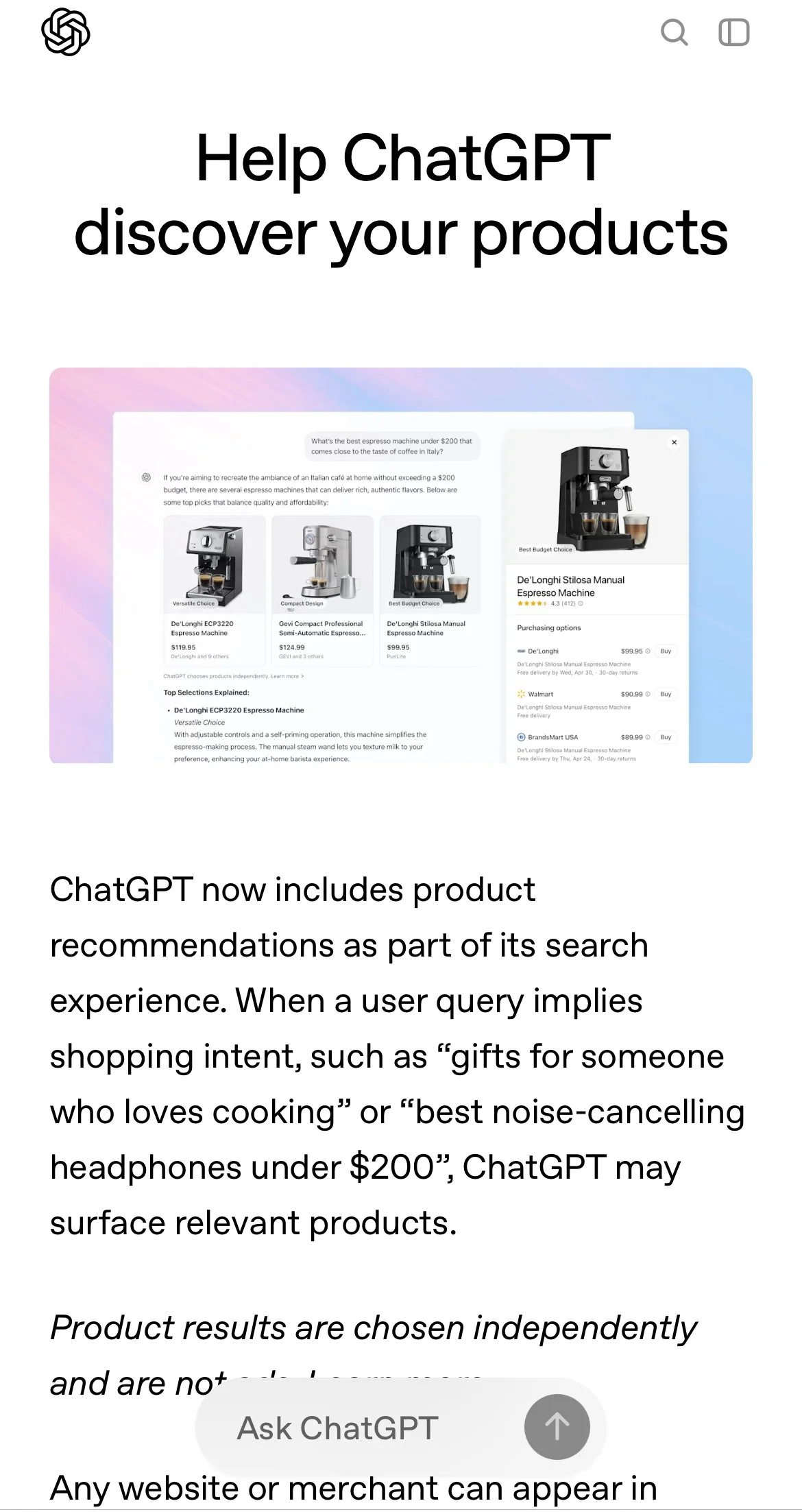The Category Killer Algorithm.
The Next Competitive Threat Won’t Be From Your Industry—And Might Already Be Winning
This Is Happening
AI Is Rewriting Competitive Boundaries—Right Now
When consumers stop googling and start asking instead, large language models (LLMs) like ChatGPT are quietly redrawing the lines of competition. Your brand is no longer just compared to others in your category—it’s compared to anything that solves the same problem.
When a user types, “What’s the best solution for stress-related skin issues?” they may get a retinol serum. Or they may get a mindfulness app. To the algorithm, industry categories are irrelevant. Algorithm optimizes for problem-solving, not product verticals.
So while you are thinking Substitution
LLMs are pushing Solutions
AND……This Affects You Now
Your Competitive Map Is Already Obsolete
CeraVe’s Reddit Strategy: Forward Thinking in Action
What began as a viral joke—linking CeraVe to actor Michael Cera on Reddit—evolved into a masterclass in algorithm-era strategy. CeraVe leaned into subreddit communities like r/SkincareAddiction and embedded itself in the kinds of conversations that LLMs scrape and surface.
Strategic Insight:
As Blimpp points out, recent Reddit discussions have a disproportionate influence on ChatGPT's skincare recommendations.
Results:
32 billion impressions
25% lift in sales
Organic mentions in ChatGPT when people ask about ceramides
CeraVe didn't just dominate skincare SEO—it built presence in the training data that AI pulls from.
Netflix's SEC Filing: An Early Alert Signal
Netflix’s SEC filing offers a glimpse into just how seriously category disruption is being taken at the highest levels:
"If our competitors gain an advantage by using such technologies, our ability to compete effectively... could be adversely impacted."
This isn’t just about Hulu or Max. Netflix sees potential disruption from any AI-powered entertainment experience, from Spotify’s mood-based playlists to AI-generated stories and relaxation apps.
Vaseline’s Cross-Category Strategy
Instead of competing in general skincare, Vaseline developed the first clinically proven skincare solution for transgender women—winning the Glass Grand Prix at Cannes Lions 2024.
Strategic Shift:
Rather than optimizing for shelf space, Vaseline positioned around specific unmet needs—the kind that show up in AI-driven queries around hormone therapy or gender-affirming care.
Result:
A long-lasting role in people’s lives—and on Cannes juries—by aligning with problem relevance, not category norms.
Invigor8: Health Supplement Success via Conversational Commerce
When Invigor8 partnered with Ochatbot, something unexpected happened:
Orders doubled
Revenue per order tripled
Why?
Their AI chatbot didn’t just recommend supplements. It helped people solve health goals—positioning Invigor8 not just against other pills, but against any solution ChatGPT might recommend: diet apps, breathing techniques, or probiotics.
This Changes Everything
Welcome to the Era of Cross-Category Competition
Amazon’s Algorithm Knows Something You Don’t
In a recent paper from Amazon Science, researchers discovered that complementarity ratings of “co-purchase-only” product pairs were 30% higher than pairs that were also co-viewed or sequentially bought.
What that means:
Amazon’s algorithms are actively redefining what’s “relevant”. It’s not just “people who bought X also bought Y”—it’s a dynamic, cross-category intelligence layer forming new competitive sets in real time.
Spotify’s Recommendation Ecosystem
Spotify isn’t winning by owning the music catalog. They’re winning because of their contextual intelligence—understanding when to recommend music, podcasts, or meditations based on time, mood, or activity.
As noted by the North Carolina Biotechnology Center:
“Spotify doesn't have a monopoly on music streaming. What it does have is a superior way to surface the right audio at the right time.”
Who they’re really competing with:
Meditation apps, productivity tools, and sleep aids—not just Apple Music.
This Is How You Win
Strategic Architecture for the Algorithm Age
The “AI Reference Strategy”
Immediate Tactic:
Get mentioned in live Reddit threads and topical forums.
According to Blimpp, ChatGPT heavily weights recent Reddit discussions in its recommendations—especially in verticals like skincare and fitness.
Content Strategy:
Build a research-backed glossary of ingredients or use cases.
ChatGPT is more likely to mention you when your website demonstrates clarity, trust, and source citations.
2. Advanced Strategy: Cross-Category Positioning
A mid-sized skincare brand executed this beautifully. By restructuring their site around problem statements like “hormonal acne” or “skin barrier repair,” they began appearing in AI-generated answers.
Ad spend? Zero.
Results? Organic relevance across categories.
How to track progress:
Don’t just measure product-category mentions. Track how often you appear across problem-category queries.
Ready to Reshape Your Competitive Advantage?
The next generation of winners isn’t competing harder—they’re competing differently.
They’re present in AI conversations, positioned across problem sets, and visible to algorithms that guide billions of decisions.
The Category Killer Algorithm isn’t coming. It’s here.
Are you showing up?
These forward-thinking brands are already winning in the Algorithm Age. Its your turn now.

